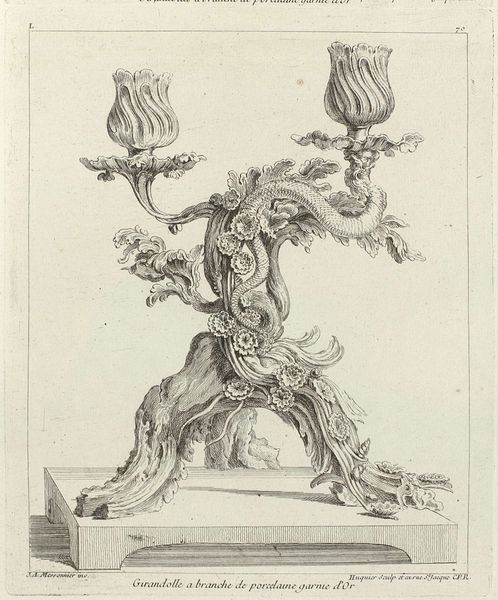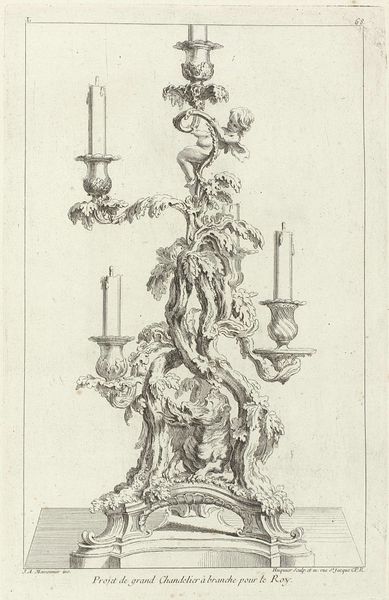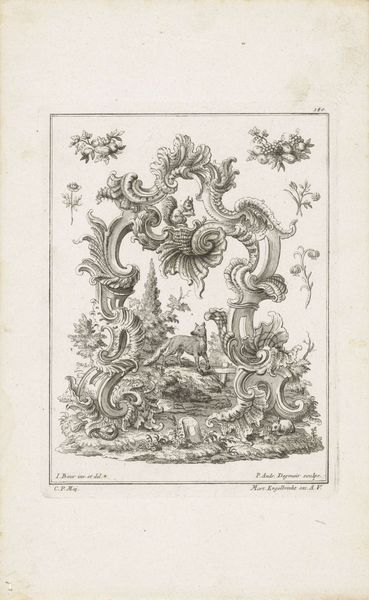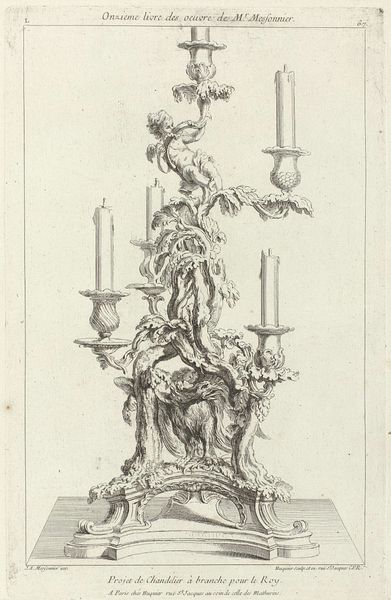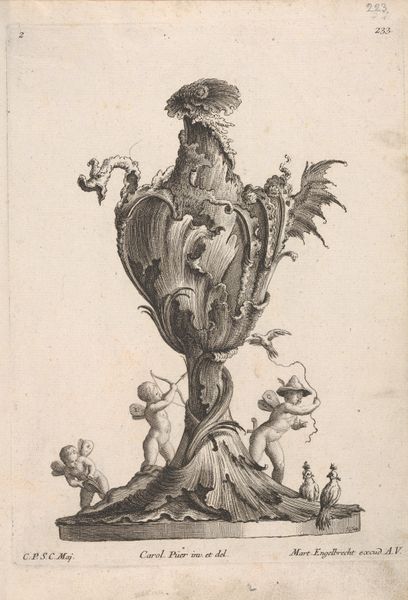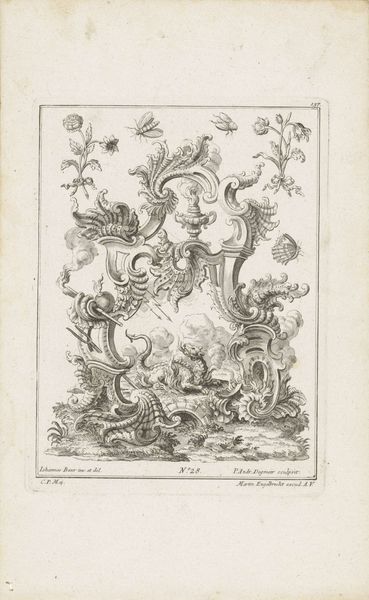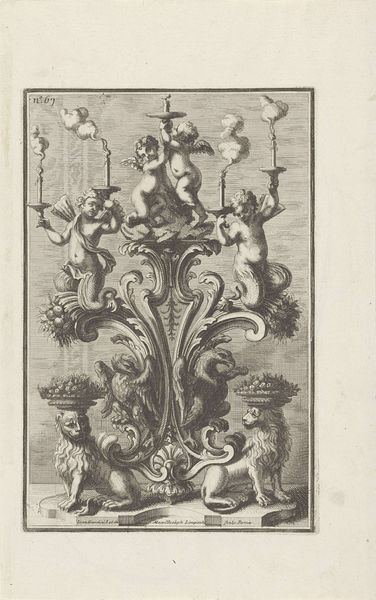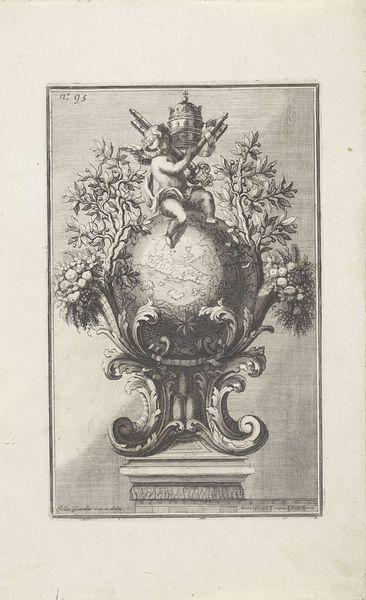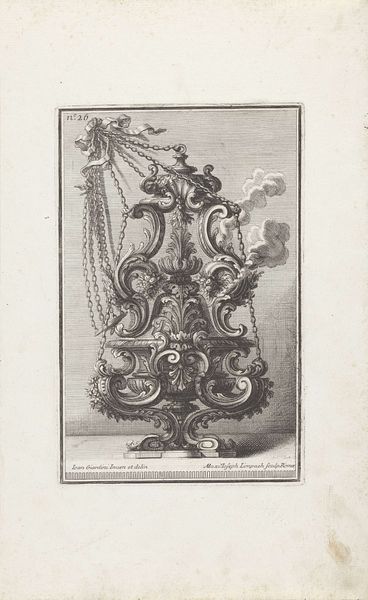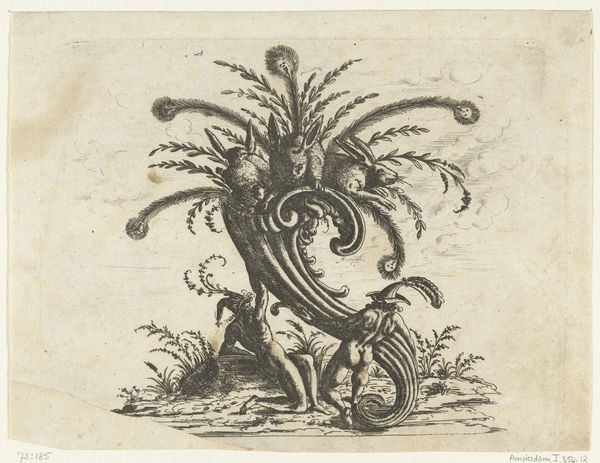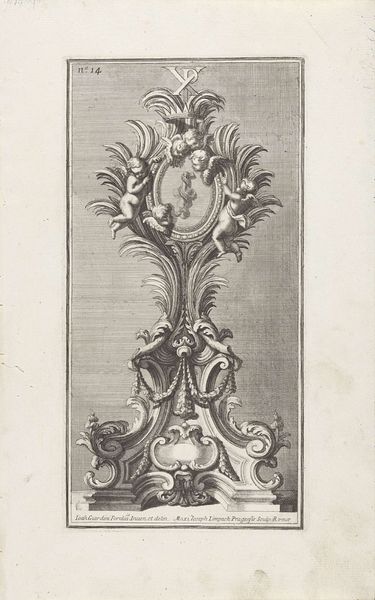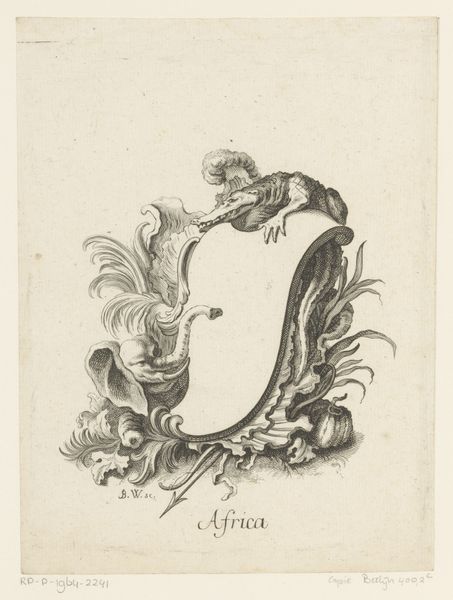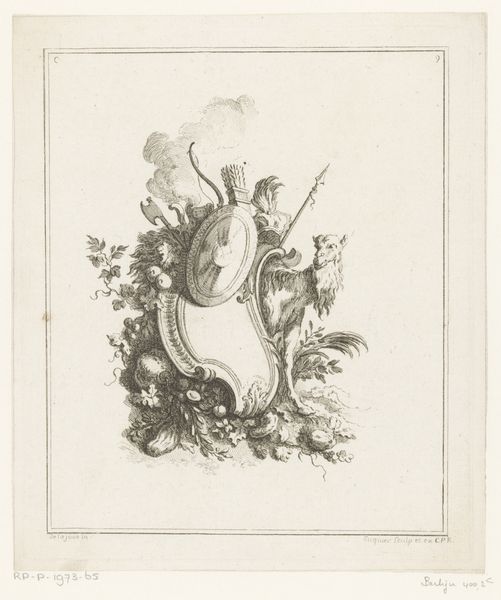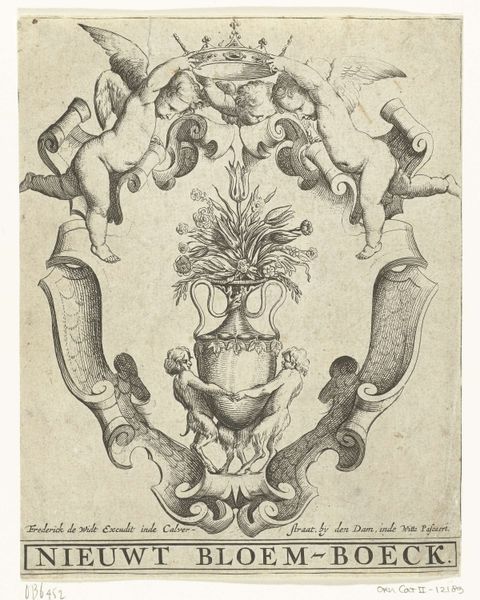
Ontwerp voor een tweearmige girandole van porselein en goud 1738 - 1749
0:00
0:00
gabrielhuquier
Rijksmuseum
drawing, print, metal, engraving
#
drawing
# print
#
metal
#
decorative-art
#
engraving
#
rococo
Dimensions: height 236 mm, width 194 mm
Copyright: Rijks Museum: Open Domain
This is a design for a two-branch girandole, or candle holder, made of porcelain and gold, created by Gabriel Huquier in France around the 18th century. The design reflects the Rococo style, which prioritized asymmetry and playful ornamentation. The piece is adorned with floral motifs and organic, twisting forms, characteristic of the period's embrace of naturalism. We see it in the branches, leaves and flowers that twist around the core structure. France was a hub of porcelain production during this time, driven by royal patronage and courtly fashion. The design, intended for elite consumption, speaks to the social hierarchies and luxurious lifestyles of the French aristocracy before the Revolution. Historians can explore archival records of porcelain manufacturers, design treatises, and inventories of aristocratic households to understand the context of this piece. By considering these institutional and social contexts, we gain a deeper appreciation for the social function of art in 18th century France.
Comments
No comments
Be the first to comment and join the conversation on the ultimate creative platform.
